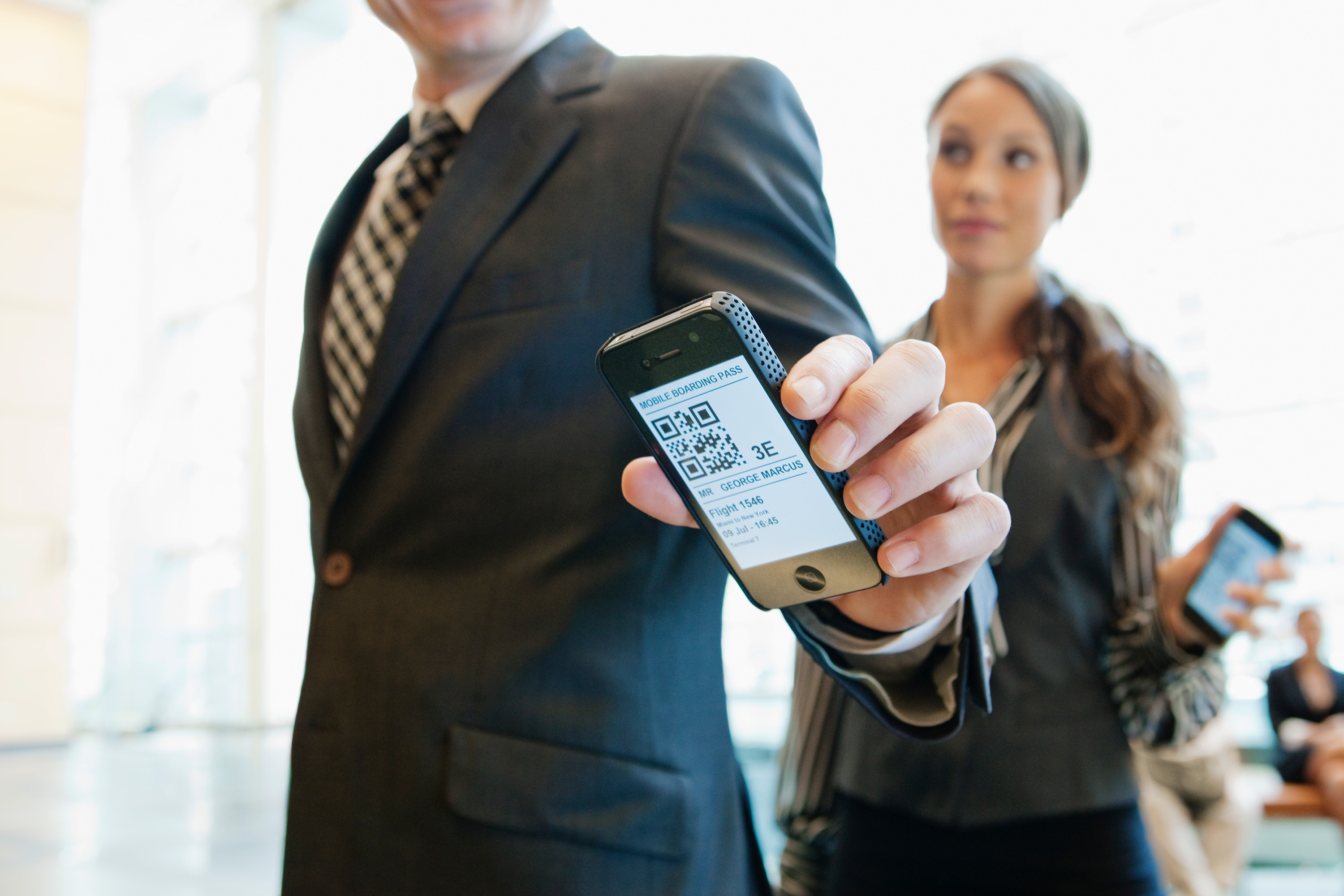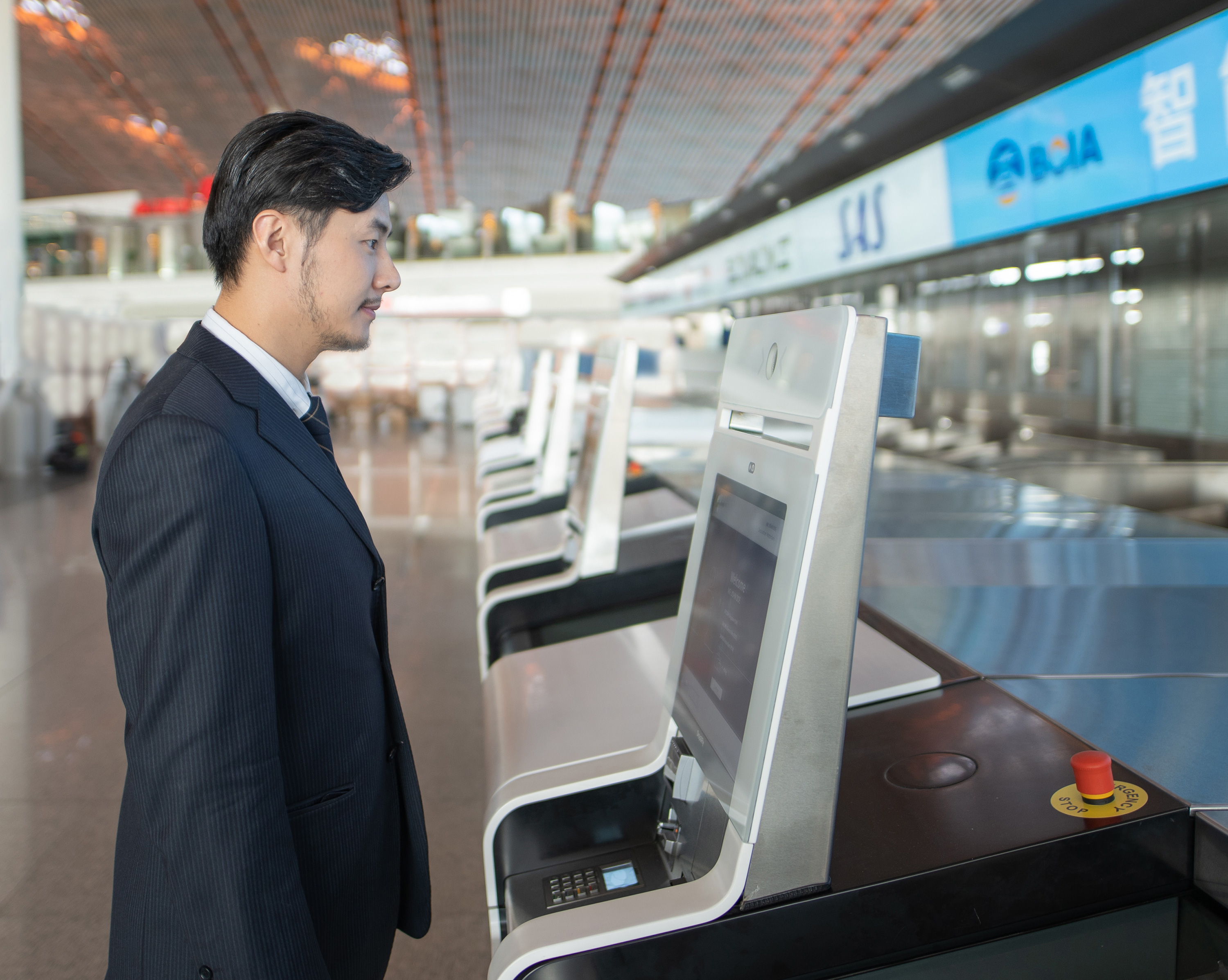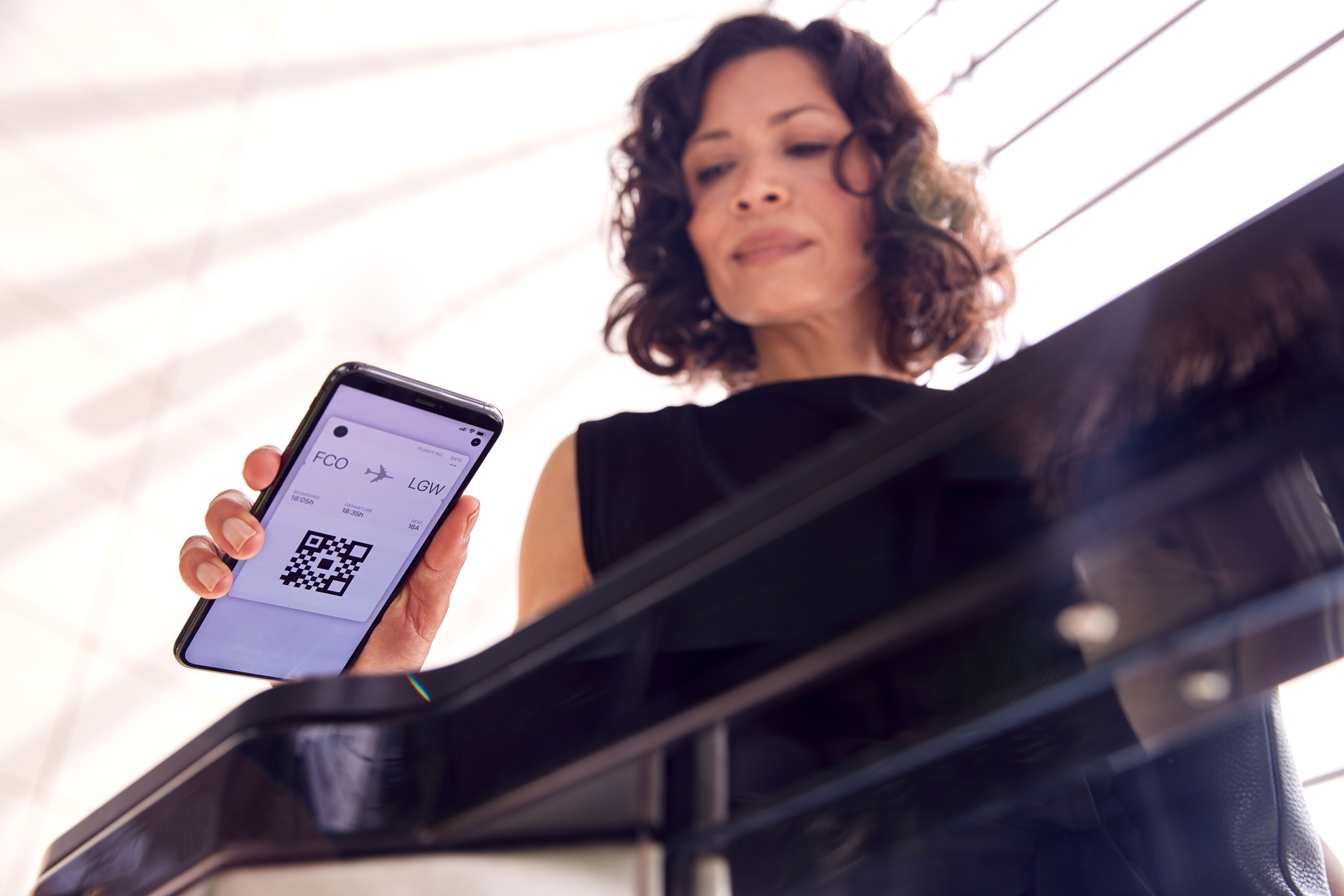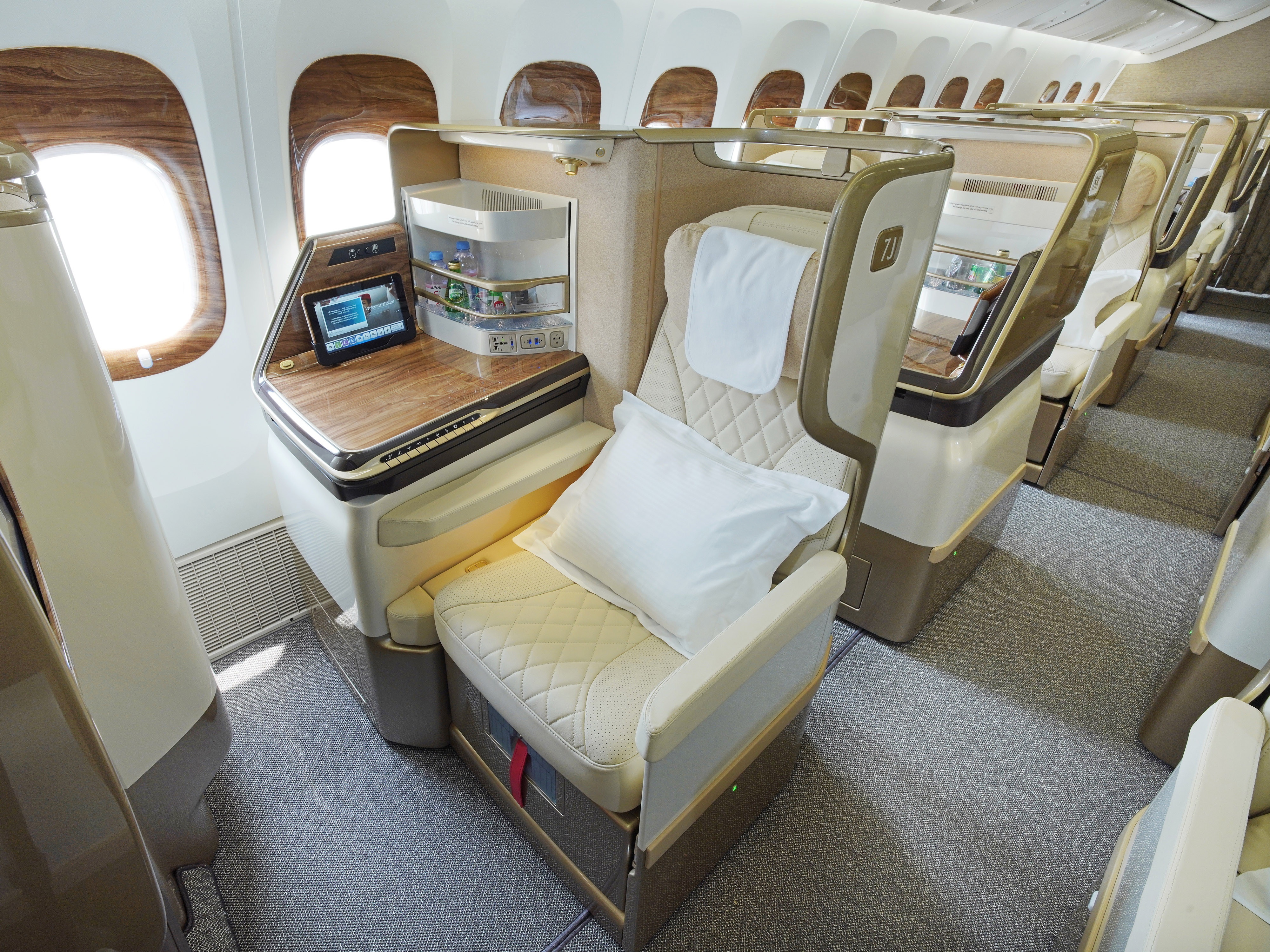Technology Key to Improving Passenger Experience
19 September, 2024
6 min read

Geoffrey Thomas
By joining our newsletter, you agree to our Privacy Policy


As air travel soars post COVID ensuring the passenger journey is smooth and efficient will be more important than ever for the industry to manage this growth according to SITA, the air transport industry's IT provider.
In its annual 2024 Passenger IT Insights report, it found that travellers see technology as the key, embracing innovations like mobile-enabled Digital Travel.
Passengers already use their mobile devices as a remote control for the journey, with high adoption across key stages like booking, dwell time, and baggage collection.
Taking this a step further, a three out of four passengers surveyed reported being comfortable with having their passport stored on their phone through a secure Digital Travel Credential and sharing this in advance to speed up the journey.
This signals the hugely important role digital identities will play in the travel experience of the future says SITA with 64% of passengers highlighting shorter airport queues as the most important improvement to the travel process, they’d like to see.
However, while biometrics have been proven to speed up passenger processing times, half of passengers express lingering concerns around data privacy.
SITA says this points to a clear need for education and reassurance about the safety and benefits of biometric technology, which are tested against rigorous data security standards.
David Lavorel, SITA CEO, said: “We are on the cusp of a new era in travel, as unprecedented demand converges with technological innovations that have the power to revolutionize the journey.
“The appetite from passengers is clear: they’re eager to embrace the latest digital solutions to make their experience swifter and more streamlined than ever before.
“The responsibility falls to the industry to ensure travellers are fully informed of the advanced data security and privacy-preserving potential of biometrics.”
Mr Lavorel said that “sustainability remains front of mind for passengers, who are willing to take on extra commitments in terms of cost and time in order to make their travel greener.
“They're willing to pay an average of 11% on top of their ticket cost to offset their flight’s carbon emissions. More than half are also open to taking longer flights at slower speed or carrying lighter baggage to reduce their carbon footprint.

SITA surveyed more than 7,000 passengers across 25 countries in the Americas, Asia, Europe, Middle East, and Africa as part of the 2024 Passenger IT Insights research. It found:
Technology usage remains high across various touchpoints of the travel journey, with 90% of passengers utilizing technology for booking and relying heavily on mobile devices for booking, dwell time, and on-board activities.
Passengers see value in smart luggage solutions like baggage tracking on mobile devices and off-airport baggage collection and drop-off services.
With the overall increase in passenger traffic, the flying pattern has changed. Avid travellers travel more, and the average number of flights taken by each has seen a notable shift towards personal rather than business travel.
The forecasted demand for travel will require airports to adapt and advance their digital capabilities to cope with increasing capacity and flow demands, without additional space. At the same time, they need to maintain a high standard of security.
Utilization of digital travel technology is not something that is just nice to have – it is an inevitable outcome of the demands placed on the current air travel industry infrastructure.
Beyond people’s comfort, SITA’s study tested the perceived usefulness of digital travel credentials and whether there was an appetite for such a solution among travellers.
Here, travellers clearly see the potential benefits of a DTC. The majority (85%) believe that having a DTC would be useful to their journey, with more than half (54%) viewing it as something that would be ‘very useful’. Younger travelers are particularly keen on this new technology, as over 90% of travellers aged 18-44 viewed DTCs as useful to their journey.
SITA found that the appetite remains high even when a potential fee for the technology is introduced. Three in five travellers (62%) would be interested in paying for such a service, with over a quarter (26%) saying they would be very interested.
SITA said that while frequent travellers are significantly more likely to say they would pay for a DTC (70%), the proportion of infrequent travellers who are willing to do the same is still substantial (60%), meaning there is widespread opportunity for rolling out the technology.
The perceived usefulness, and interest in paying for, a DTC is particularly high in Asia Pacific and Middle East/Africa regions, due to greater familiarity, as this technology is more widespread in these regions.
Key to the uptake of digital solution sis the frustration of air travel across the globe. SITA found that 50% of respondents had suffered long wait times and queues and 26% had experienced mishandled baggage.
When asked what are the two most important factors that they would like to see improve the overall travel experience, 64% said shorter wait times at airports and 40% said one ticket for the entire journey.
Most travellers say they would ‘trust a fair amount’ or only ‘somewhat trust’ border control, airlines and airports with their personal data.
When SITA asked passengers what their main concerns were when it came to biometrics, the three coming up the most were: data privacy (49%), potential for identify theft or fraud (47%) and data misuse (44%).
Clearly SITA said the airline industry needs to educate and reassure them about the safety and security of the technology. Added to that there is a need for education as to what exactly biometrics are, how they are used and what makes them so beneficial to the traveller.
The environment is also a big issue with passengers. SITA said that when asked what percentage of their ticket price passengers would be willing to pay extra to offset carbon emissions, the proportion willing to pay only 10% or less has risen from 53% in 2023 to 64% in 2024.

It found that only one in seven wouldn’t pay any extra, and there has been a small increase in the proportion willing to pay much higher sums (30% of their ticket or more).
SITA said that it found that female travellers and younger travellers report a significantly higher willingness to pay more to offset carbon emissions than male and older travellers.
SITA said that overall, this means that despite the financial challenges that people are facing in the current economic environment, the average sum passengers are willing to pay on top of the original ticket price is 10.8% - the same percentage as in 2023.
Interestingly SITA found that passengers are also willing to make changes to their flying habits to lower carbon emissions.
More than half (58%) would be willing to take a flight that was an hour longer if it meant a 25% lower carbon footprint, and a similar number (57%) would be willing to take a two hour longer flight for a 50% reduction (with planes flying at slower speeds incurring lower CO2 emissions).
SITA also found that people are willing to consider checking in lighter baggage for the sake of a lower emission flight with 81% saying that they’d be willing to take less luggage or only take carry-on luggage if this was the outcome.
Again women and younger travellers are even more likely to be willing to make these sacrifices in the name of sustainability.
Get the latest news and updates straight to your inbox
No spam, no hassle, no fuss, just airline news direct to you.
By joining our newsletter, you agree to our Privacy Policy
Find us on social media
Comments
No comments yet, be the first to write one.

